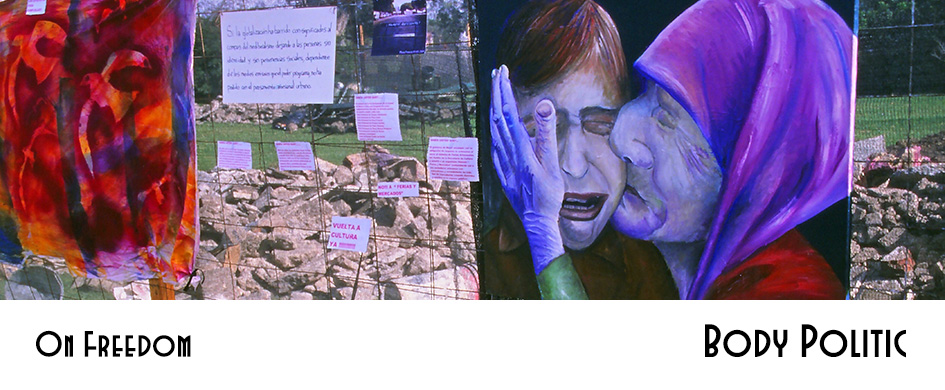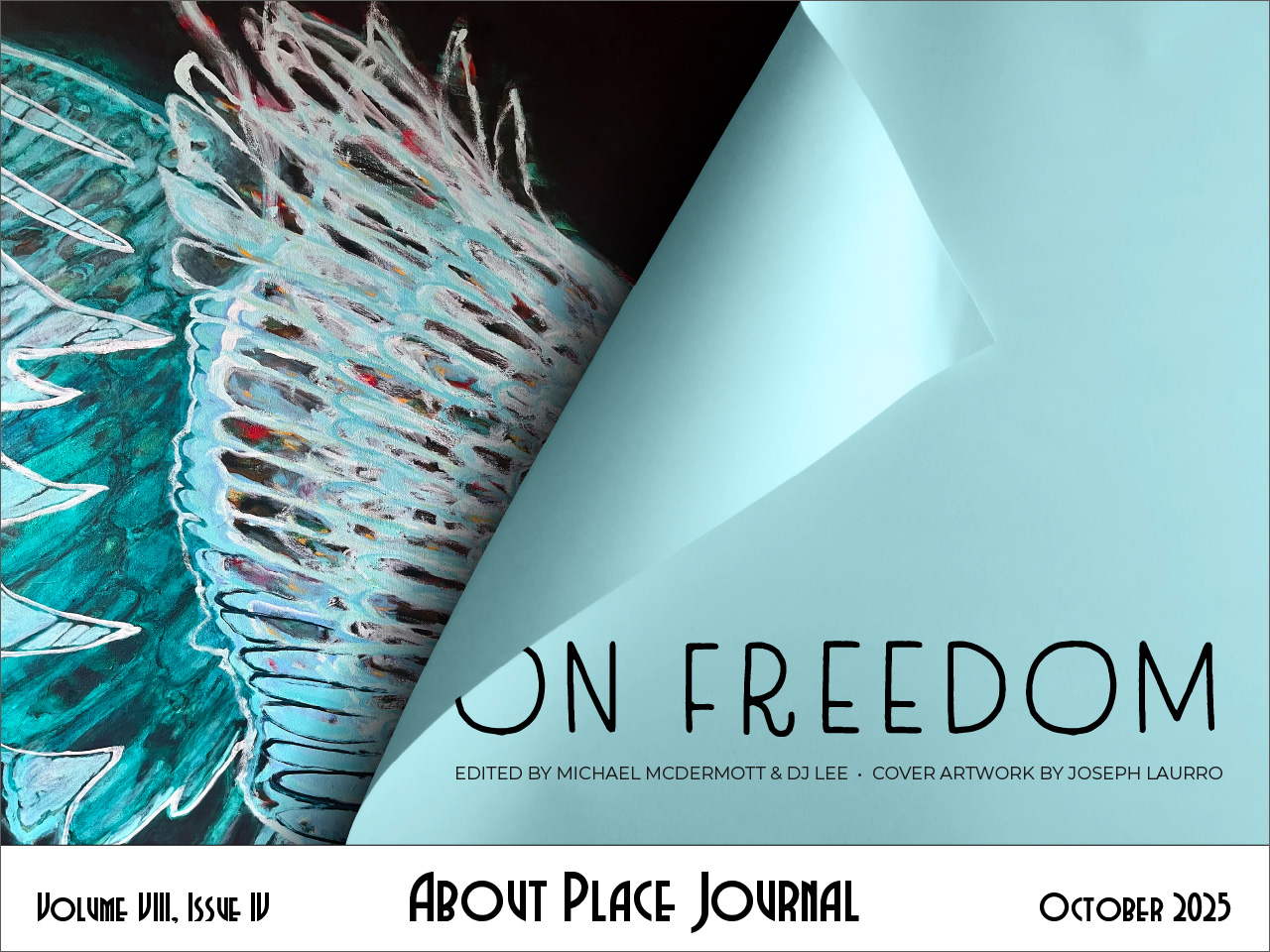“Just make sure that whatever you do, you don’t come out of there sayin’ yo’ name is Kimberly.” Those are the words that lingered in my head after I arrived in New York for the first time, prepared to embark on my journey to Sarah Lawrence College. I had gotten lost in Harlem at around 125th Street and bumped into a guy named Clyde who told me I was “a down sista.” He didn’t understand what a person as unapologetically Black as me would be doing going to Sarah Lawrence—the most expensive college in the nation (at least at that time) in upstate New York. Clyde saw me as fitting better at an HBCU.
As a first-generation college student, the cultural significance of HBCUs and sororities was not emphasized in my home. Consequently, I sought out opportunities where I thought power resided: New York, among whites at a college renowned for its rigorous writing program. I know my statement might sound self-hating, but let’s be clear. My name is Ciara Miller—nothing close to Kimberly—and I’m from the West Side of Chicago. I grew up not too far from Rockwell Projects. Within my lifetime, I have come to understand what it means to crave Black camaraderie, especially when starved of it in predominantly white spaces. I also grew up questing to escape my Black community.
My narrative may not be the same as that of other West Siders who grew to appreciate their community and family within it. My experience growing up on the West Side was filled with the humiliation of undisguised poverty. My mother wasn’t one of those moms who bought me Jordans or name-brand anything when we lived in the ghetto. She was very old-fashioned. She believed $1 was a lot of money, so don’t even ask her for that. I will never forget shaking to my knees when I asked her for ten cents. I wanted to be strategic in my request so that it wouldn’t appear as though I was asking for too much.
Crackheads and the mentally ill were rampant in my community—they comprised the community. Common neighborhood talks regarded fighting. And I was very much a lover of Barney and Friends and Arthur—educational shows of high moral value. I loved TGI Fridays when you could watch Family Matters, Step by Step, Full House, etc. I didn’t fit into my community, and if my mother had any sense or expectation of placing her children in schools that fit their spirits, she would have known to take me out. But she didn’t think that far into possibilities. As a family in poverty, she could only afford free education at the school across the street from our section 8 apartment. I struggled through my last four years of elementary and middle school at Calhoun North Elementary (which has been shut down for nearly 15 years with no repurposing. Thanks, Rahm Emmanuel, who graduated from Sarah Lawrence).
If I’ve learned anything, it’s that the dominant culture’s ethos trickles down to marginalized communities, for sure. If the U.S. is one colonial power, then some ghettos further perpetuate these control measures by asserting their standards for behavior. At Calhoun, there was such a thing as being too light in complexion. Many of my friends who are lighter than me or biracial tell me that I look like a “normal Black girl.” And that’s always my major signal that they did not grow up around mainly Black people (no offense… y’all still Black). But Black people who are identifiably Black and socialized with Black folks are often hyper aware of skin complexion and hair texture. We don’t need a printout of skin colors to recognize a difference between what we term “brown skin” and “light skin,” and I remember being referred to as the color of piss as a child.
On my first day at my elementary school, I saw a girl in an ambulance truck who had been stabbed in the eye with a pencil. Some of my classmates wanted to choke me out just because I spoke “proper” English and gained the adoration of teachers for raising my hand. My classmates were able to sniff out differences, and they weren’t letting anything that reminded them of whites or something different from what their community or families represented come into that school and gain an advantage.
My point is that I don’t look back at my time on the West Side with starry-eyed adoration. I didn’t go to college and become some Black Power activist and treat the people I grew up with as representations of oppressed people either. I lived the poverty that some people only read about in books. I lived the poverty that some people only visit occasionally. I lived it, and I can say there were good moments of scraping together quarters to chase the ice cream truck and classic memories of my best friend’s brother slapping “burnt-faced Brenda” over holding me and her hostage over $5 she believed my friend stole. But I actively wanted to get out of the ghetto.
Every outside day was a Pinky and the Brain adventure with my best friend. “What are we going to do today?” “The same thing we do every day. Try to take over the world.” The only thing is that we weren’t even conceptualizing world dominance. We wanted to strategically get out of the ghetto. We even wrote letters to Oprah and Jenny Jones to get school uniforms because our situation was so dire.
Now that I’m an adult who willfully and blessedly has employment at a community college in the heart of one of Chicago’s most highly stigmatized ghettos—Englewood—I’m able to look at the community which bears many similarities to where I grew up in Garfield Park and North Lawndale and take all of my prior experiences with me and assuredly say, NO ONE GIVES A FUCK ABOUT THE POOR. Truly. And even me… My words should also be brought into question because I realize that unless I made the intentional decision to live in my old community (which would of course be a decision from a place of privilege… a place of strategically planting myself there so that I can have educational impact on the people), I would never choose the community where I was raised.
I would never choose to raise my children there. I wouldn’t choose Englewood either. I would choose Hyde Park. I would choose parts of Woodlawn. I would choose parts of South Shore. I would even choose the “Near West Side,” which was once West Side—West Side before gentrification. If I wanted to own a house, I would choose Beverly. I would choose a western suburb. This means that I’ve acquired at least some level of privilege (hard-earned, of course) to make decisions about where I want to plant myself.
Today, I feel more like Will Smith when he infamously said, “Keep my wife’s name out yo’ f-ing mouth.” I feel a deep-rooted connection to the poor, even with my questionable choices about where I choose to live. In college, professors and classmates wanted to talk about the poor and use statistics or pseudo compassion. The poor are used for political conversations. In college, I realized that I was never expected to make it into such an elite institution. It felt like I had entered a party that I was not invited to, and I was able to hear the gossip about my family. And I would sit there in those classrooms, having personal knowledge of my people, wondering where all of these misconceptions had come from and why I was forced to discuss my community through quoting Karl Marx.
I finally understand why politicians never or seldom mention the poor when rallying for more votes. They don’t see the poor. They see past them. They don’t see them as providing any meaningful contribution to society. The poor only exist for big corporations to profit from. They exist for the creation of more jobs to assist working- or middle-class people to bring home a steady income. Wherever the poor are, there is someone or some entity that feels needed. It’s not too different from people who date fix-me-uppers. Wherever there is deprivation, someone can come in dutifully and assert their necessity. But trust me, you. This nation has no investment in the total eradication of poverty. So many people would be unemployed if we wiped out poverty. A select few people will benefit from the nonprofit services provided to them to alleviate their socioeconomic condition, but the general system of inequity will remain intact. It’s a major component of capitalism.
***
But Clyde was right about one thing. There would be several Kimberlys at Sarah Lawrence—people of color who entered the school with one name and came out with another name that appeared white adjacent or with attitudes that were more aligned with the upper class, even if they never had a paycheck of more than a few thousand dollars. I would enter and leave the institution as Ciara, but be not mistaken. I could never unsee how much the white elite do not see the poor… do not see my family… and do not see me—they only tolerated me as their charity subject. My decolonization journey would take years to complete: a grave mission.


